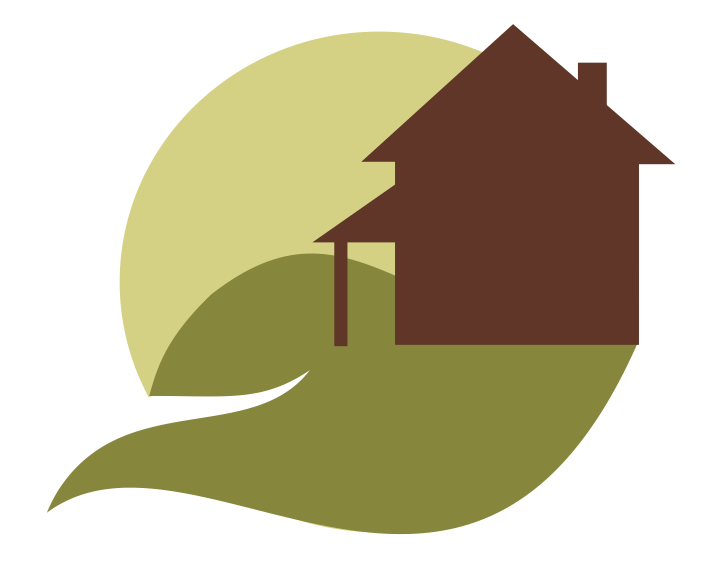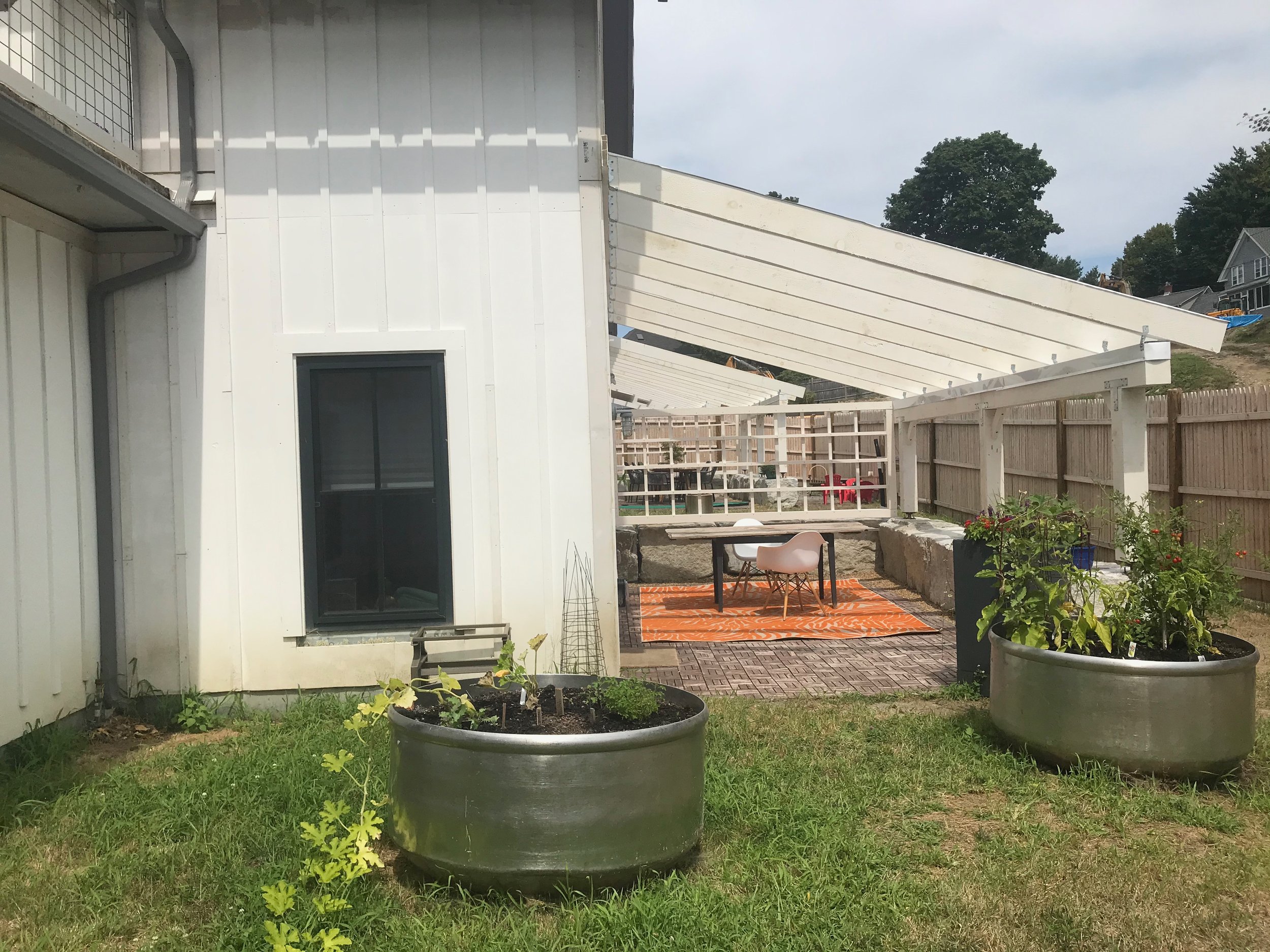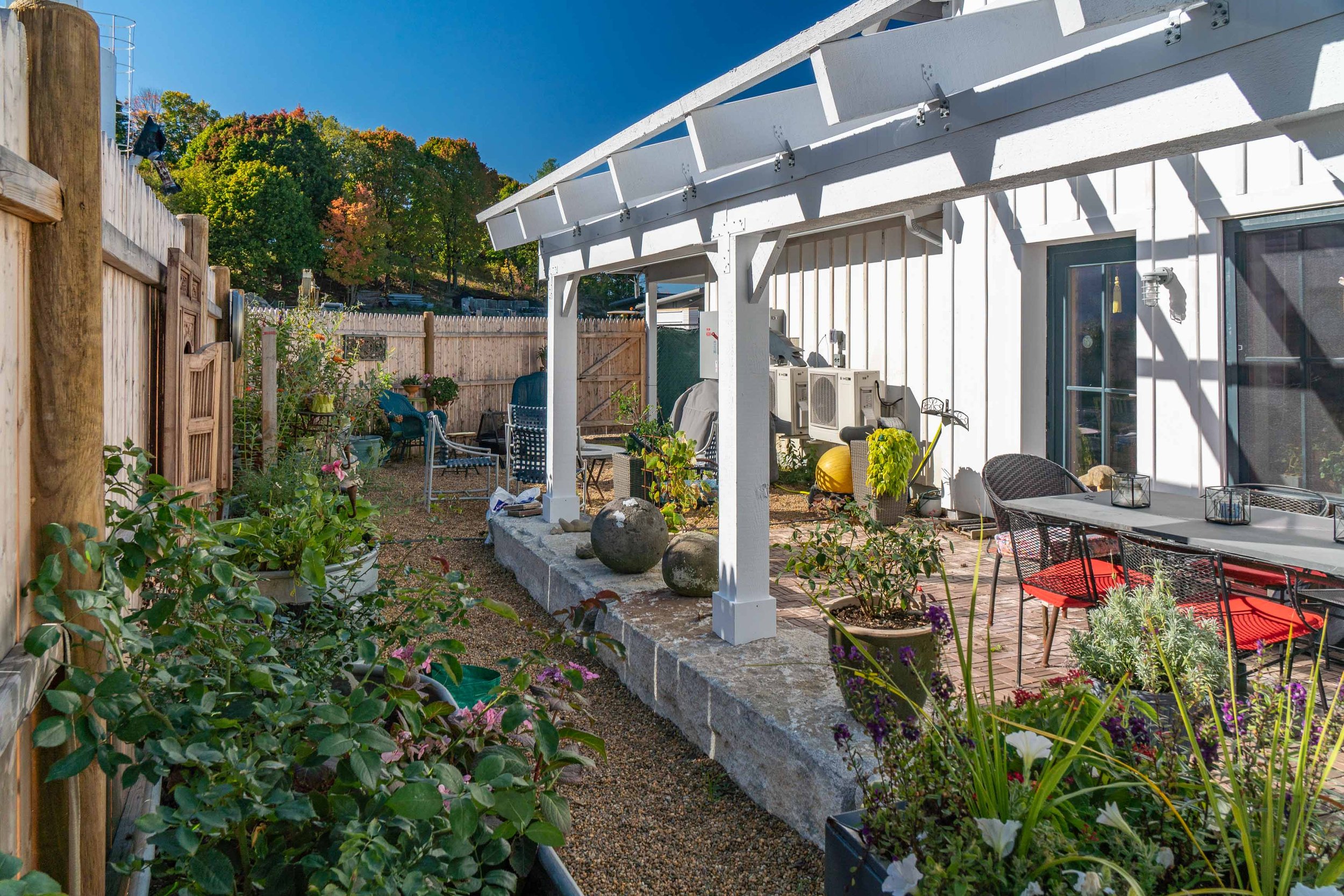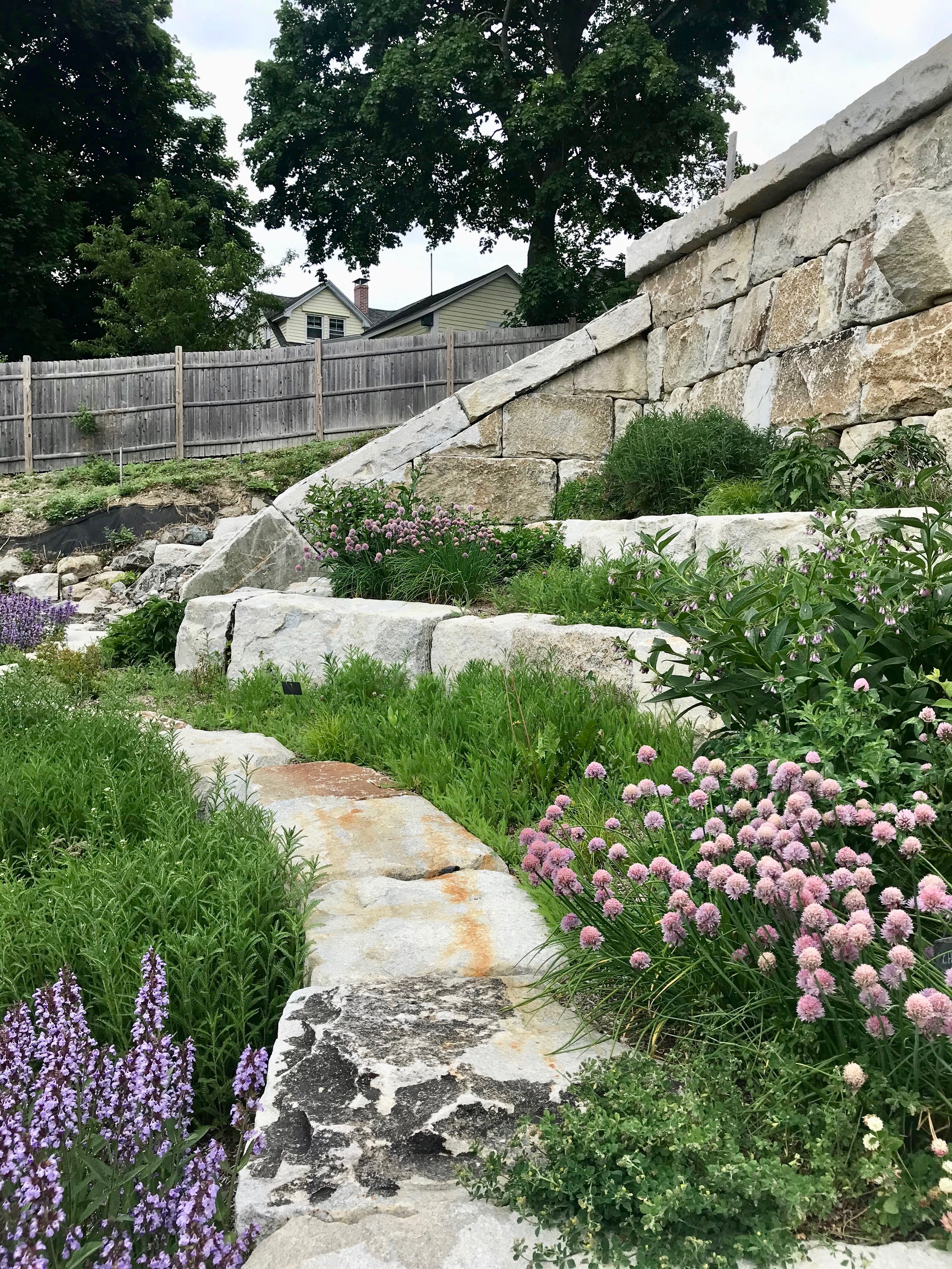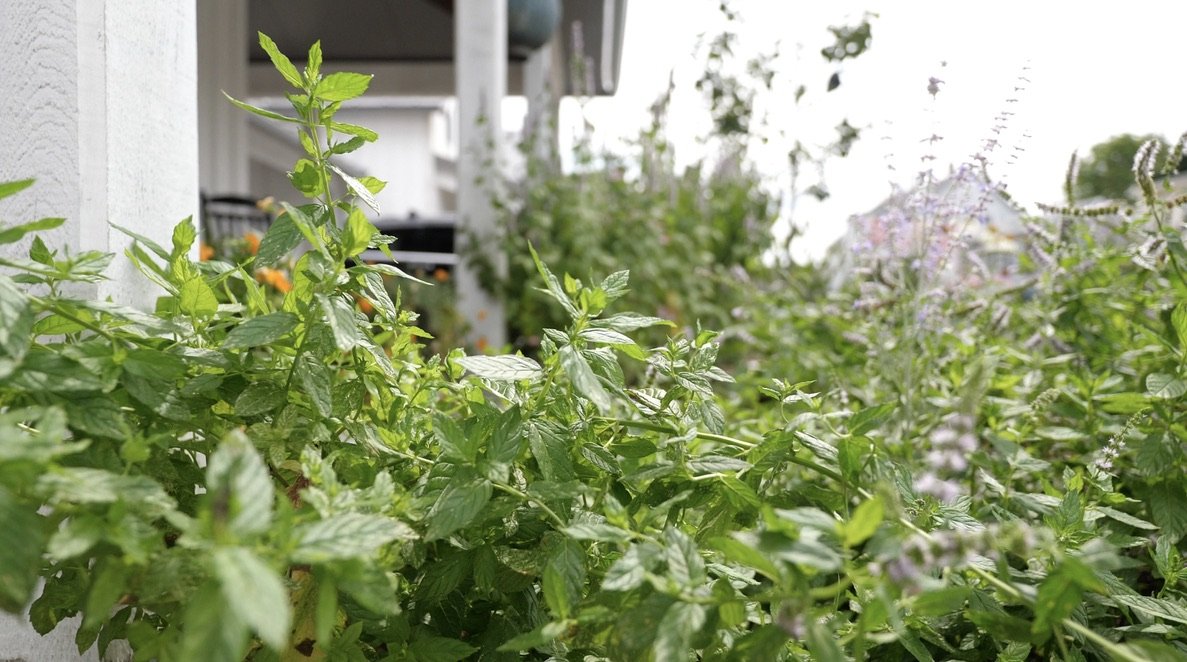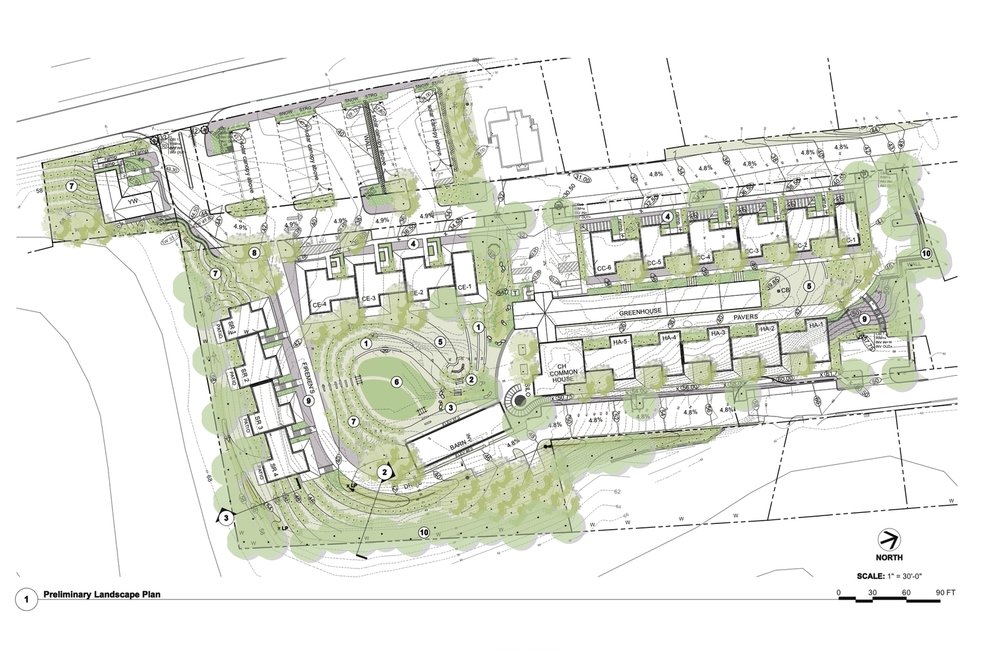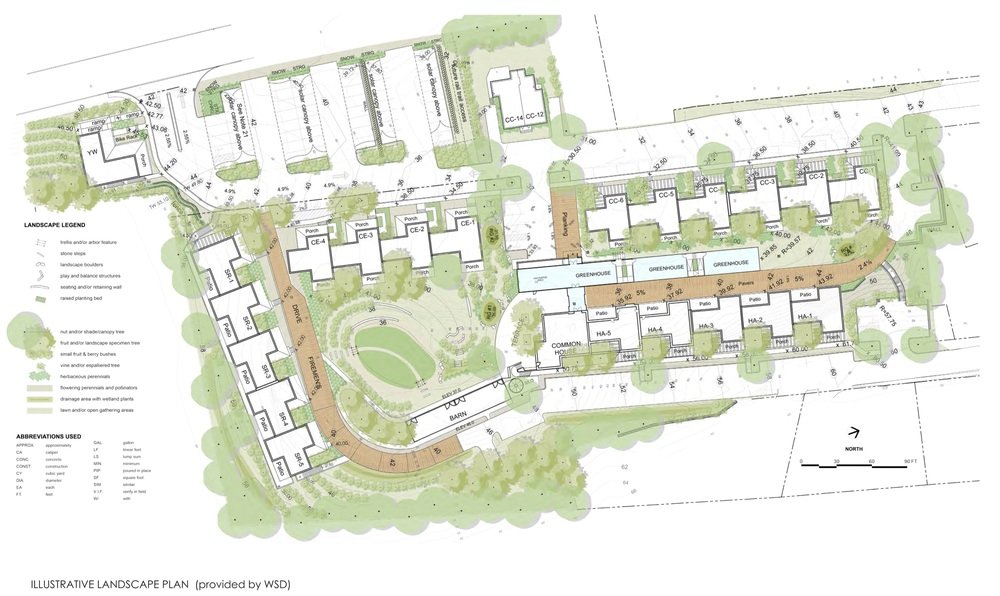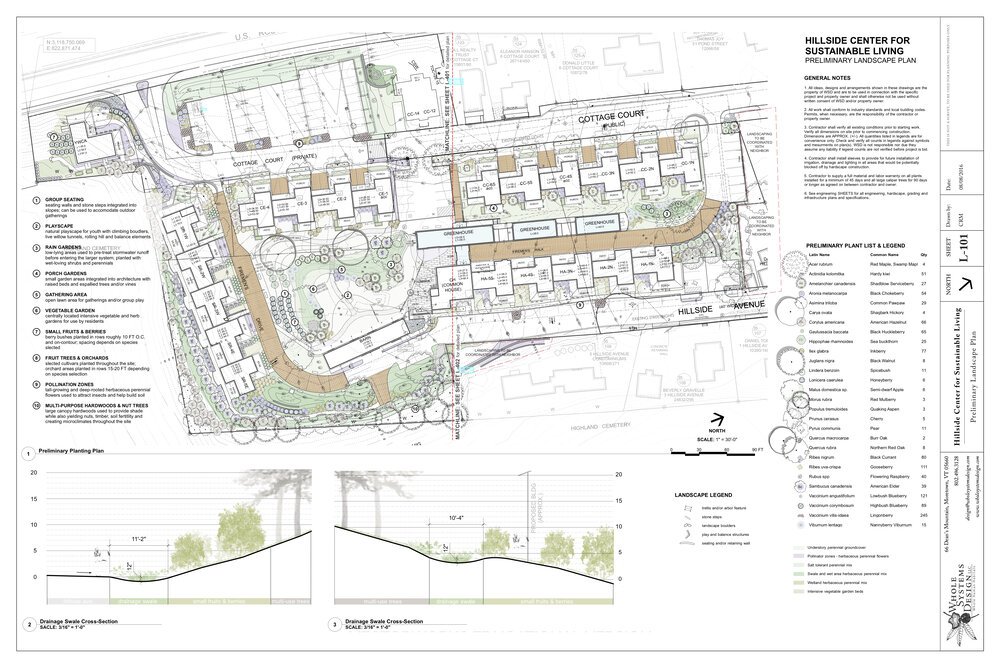With an edible landscape, urban gardens, and year-round greenhouse, food production is abundant at Hillside. This is important to us because we know what a large, positive impact small scale agriculture can have. Industrial agriculture and its associated processes are responsible for one-third of the world’s greenhouse gas emissions.
Large-scale industrial agriculture requires the use of harmful pesticides, fertilizers, antibiotics, and fossil fuels to keep up with demand. These systems externalize poor nutrition, dangerous air quality, water pollution, and greenhouse gas emissions, harming not only the earth and people today, but putting our collective future at risk.
Implementing small scale agriculture is an essential step in shifting the future of climate and public health. This model of farming changes a community for the better by increasing food security, creating viable jobs, and connecting people with their food.
Residents have access to producing food in their own private patios, as well as participating in site wide agriculture programs. Some residents may choose to plant in structured raised beds, others may dig right into the ground. Anything planted in the residents’ yard is theirs to use for personal use, or decide to share. Anything grown in communal spaces (terrace garden, basin, etc.) will be voluntarily foraged by residents and put in the Common House kitchen for residents to take what they believe they need.
Hugelkultur
Hugelkultur (pronounced: hoogul-culture) is a permaculture technique derived from Germany. “Hugel” in German means “hill” explaining the planting practice of creating raised beds in the shape of a hill/mound on top of decaying logs. On top of the logs goes branches, grass clippings, compost, soil, and any other biomass to round out the mound. The seedlings get planted in the topsoil layer of the mound, and the work is essentially done.
Hugelkultur works because the underlying logs create a consistent stream of nutrient rich, organic matter as it decays. The logs also release heat as they decay and retain rainwater to then be used by the growing veggies. Hugel beds are an extremely low maintenance permaculture solution once they are up and running.
As we begin construction on our final two buildings, we will have to undertake the unfortunate task of cutting down a lot of trees that currently exist within the hillsides of our site. We were thrilled when we discovered hugelkultur as it will allow us to meaningfully repurpose the trees that once stood. The logs will be laid on the west side of the South Solar Canopy (between Route 1 and the solar canopy) and we will pile all the branches, leaves, upturned soil, and any other biomass that accompanies the cutting down of trees to build our mounds.
We will then top the mounds with compost generated by our residents and use them as planting areas to provide fresh herbs, fruits, and veggies for our residents. The exposed log ends also provide the perfect environment to propagate wild (but safe!) mushrooms for our residents to forage. Small fruit trees will be planted around the hugel mounds to provide wind barriers and an additional food source. The mound will also decrease noise pollution from Route 1 and provide a beautiful, natural barrier to separate our community from the roadway.
Digit rendering of hugelkultur at Hillside
Note: in reality the log ends will be exposed on the sides of the mound.
